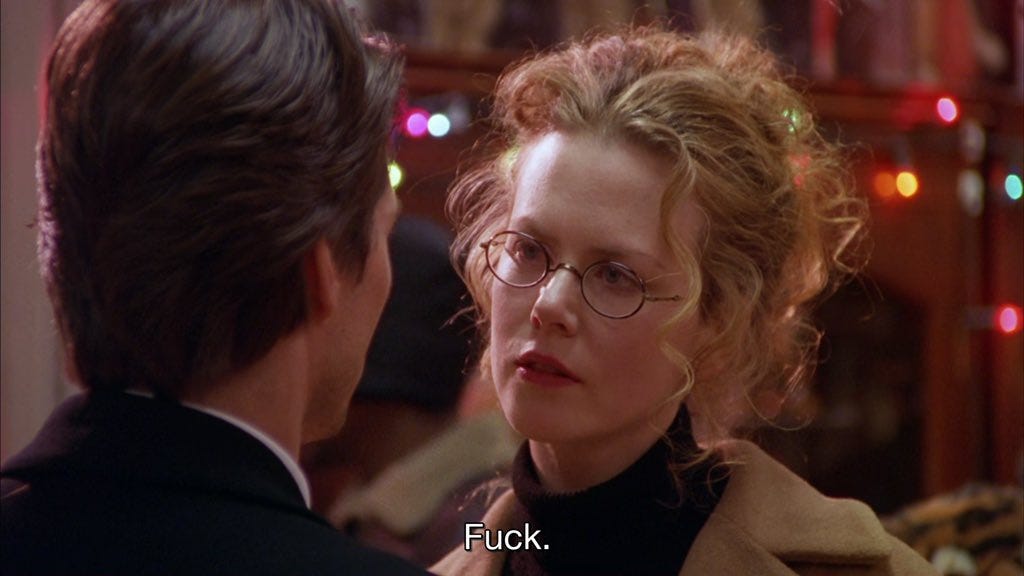Dad Grass is a cannabis startup that sells joints made with “mellow” weed, like the kind your old man used to smoke, if he was smoking weed in the 70s. The ad copy goes like this:
Dad Grass is reviving the mellow sensibility of the casual smoke. Our 100% Organic hemp flower and pre rolled joints serve up a clean buzz without the fuss…Like your dad’s stash, we keep things easy and dependable, never fancy or complicated.
You have to admit it’s good branding: an aestheticized throwback pot for the many boomers who want a less potent high. No need to dabble in dabbing, for the plant of our forefathers has been recycled by the unequally decriminalized startup drug economy of the twenties! How long until Quaaludes make a comeback, too?
In light of what we know about the targeted criminalization of black people and people of color through the war on drugs, it’s probably not controversial to suggest that Dad Grass markets a nostalgia-based cope implicitly for and about white people by capitalizing on the image many of us have in mind of who was smoking weed in the 1970s, just as we have images in mind of who was doing ecstasy in the 90s, crack in the 80s, absinthe at the turn of the century, maybe even opium before the birth of Christ.
While Dad Grass is neither alone nor original in adopting manufactured nostalgia as a business model, it nevertheless stakes a claim on the American cultural memory of its product, revising the myth it claims to embody.
I recently listened to an episode (on what I think of as “my” Russia podcast) about the history of tobacco in imperial and modern Russia. Recounting its early laws governing tobacco use—which dealt offenders such hair-curling punishments as nostril-slitting—American historian Tricia Starks details how tobacco’s reputation as a physical and moral corruptor contributed to such draconian disciplining.
Despite this repressive history, Russians are now the second-smokingest nation in the world, with the majority of adults being or having been cigarette smokers. As usually happens, an erstwhile vice’s religious PR was gradually overcome by a boatload of socioeconomic factors—industrialization, Tsar Alexander II’s reforms of the 1860s and 70s, 19th century imperial militarism, and in the 20th century, the Bolesheviks’ conflicted reliance on the tobacco industry’s revenue (Lenin was a vehement antismoker). It’s only recently that tobacco smoking—with its deep connections to normative masculinity, imperial and Soviet militarism, and capital in a country undergoing the same existential crises as everyone else—has been recognized as a public health crisis.
While reading up on this topic, I found a Mayo Clinic article comparing Stalin’s political propaganda with the ad campaigns of “invading” Western cigarette companies; the former is described as “cold and calculating,” while the latter is “smooth and subtle.”
My phone used to send me targeted ads about trauma, marketing algos having decided that the odds are pretty good that I’m an ex-boy scout or -alter boy in need of specialized care now that I’m a PTSD-stricken adult. Lately, those ads have been replaced by ones for ketamine therapy.
I’m not surprised—I’m a trans adult in therapy and ketamine’s having a moment1. Not that I mind, exactly. I’m curious about ketamine’s psychiatric potential. In March, P.E. Moskowitz described ketamine as “a good drug for a bad world.” In May, Jules Gill-Peterson wrote that if ketamine hadn’t saved her life, “it had at least secured it in a way nothing else ever had.” In her 2019 book, trans girl suicide museum, Hannah Baer says of using ketamine, “The feeling of being not one single person…is transcendent.”
With so many of my peers writing about it while so many people close to me struggling with their mental health, I’m following the discourses around cope’s It Drug with interest. Cure severe depression, the ads in my phone promise. Part of my job is writing ads like this; I wonder if the copywriter (or more likely the growth marketer) who comes up with these thinks they’re telling a truth or a lie.
David tweets at @k8bushofficial.
Subscribe to support our mutual aid project, GOOD ADVICE/BAD GAY, an advice series from an anonymous gay therapist who’s not afraid to hurt your feelings with the truth. Sample an unlocked post for a taste of what you’re missing.
Want advice? Email badgayadvice@gmail.com for a free 3-month subscription.
I’ve read little contributing to a geopolitical understanding of ketamine, but this recent article about China’s ketamine import market and the return of the party-state was pretty interesting.






